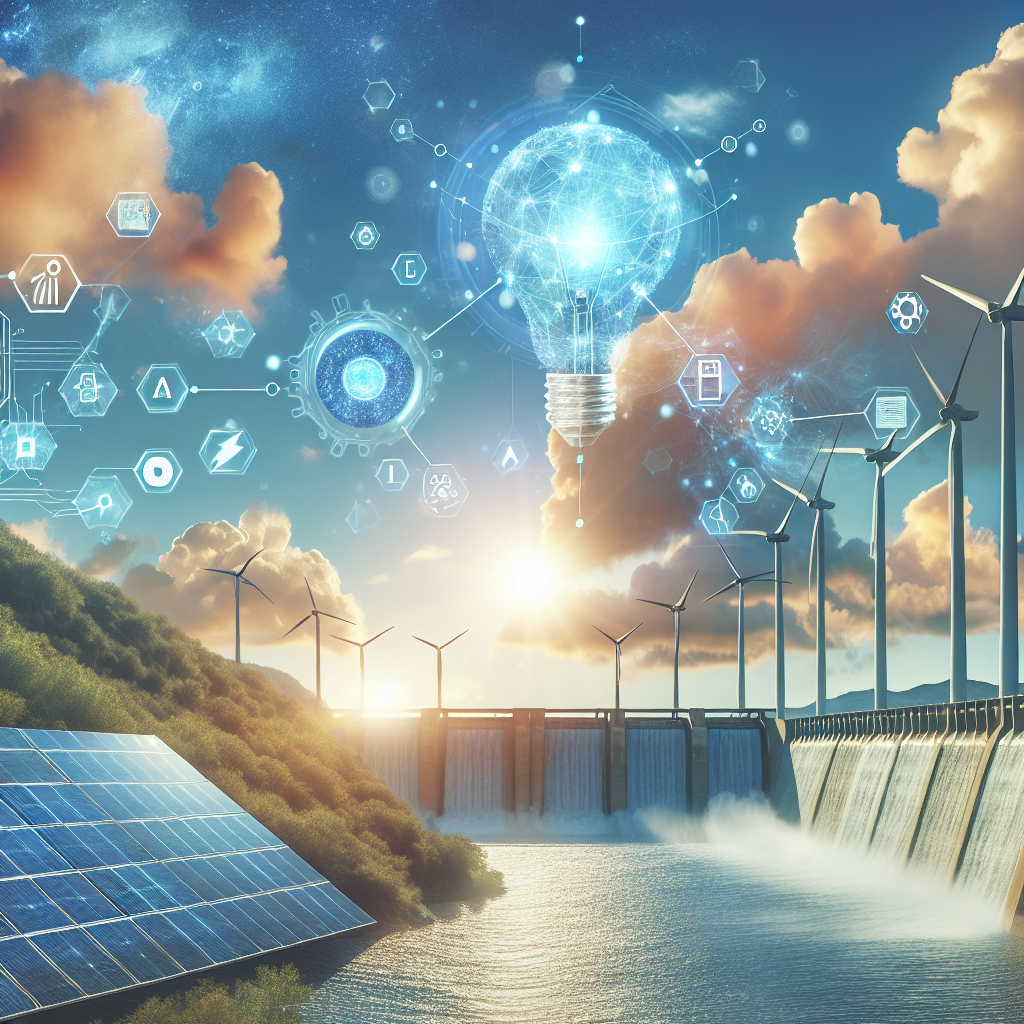In recent years, there has been a growing focus on renewable energy sources as a sustainable alternative to traditional fossil fuels. With concerns about climate change and the depletion of finite resources, governments and organizations around the world are investing in renewable energy technologies such as solar, wind, and hydroelectric power. However, the intermittent nature of these energy sources poses challenges for their widespread adoption and integration into existing energy grids.
This is where artificial intelligence (AI) technologies come into play. AI has the potential to revolutionize the way we produce and consume renewable energy by optimizing energy generation, storage, and distribution. By leveraging AI algorithms and machine learning techniques, renewable energy systems can be made more efficient, reliable, and cost-effective. In this article, we will explore the various AI technologies that are being used to enhance the performance of renewable energy sources.
1. Predictive Maintenance
One of the key challenges in the renewable energy sector is ensuring the reliability and longevity of energy infrastructure such as solar panels and wind turbines. AI-powered predictive maintenance systems can help detect potential issues before they escalate into costly breakdowns. By analyzing sensor data and historical performance metrics, AI algorithms can predict when equipment is likely to fail and schedule maintenance proactively. This not only reduces downtime and maintenance costs but also extends the lifespan of renewable energy assets.
2. Energy Forecasting
The intermittent nature of renewable energy sources makes it difficult to predict how much energy will be generated at any given time. AI technologies can help improve the accuracy of energy forecasting by analyzing historical data, weather patterns, and other relevant factors. By providing real-time insights into energy production, AI-powered forecasting systems enable energy grid operators to better manage supply and demand, optimize energy storage, and minimize wastage.
3. Grid Optimization
AI algorithms can optimize the performance of energy grids by dynamically adjusting energy flow, managing peak demand, and balancing supply from multiple renewable sources. By analyzing vast amounts of data in real-time, AI technologies can improve grid stability, reduce transmission losses, and enhance overall energy efficiency. This is particularly important as the share of renewable energy in the grid continues to grow, necessitating smarter and more flexible grid management solutions.
4. Energy Storage
Energy storage is a critical component of renewable energy systems, allowing excess energy to be stored for later use when demand is high. AI technologies can optimize energy storage systems by predicting energy demand, managing charging and discharging cycles, and maximizing the efficiency of storage units. By integrating AI into energy storage solutions, renewable energy systems can achieve higher levels of reliability, resilience, and cost-effectiveness.
5. Smart Energy Management
AI-powered smart energy management systems enable consumers to monitor and control their energy usage in real-time. By analyzing data from smart meters, appliances, and other connected devices, AI algorithms can identify energy-saving opportunities, optimize energy consumption patterns, and reduce overall energy costs. This empowers consumers to make informed decisions about their energy usage, reduce their carbon footprint, and contribute to a more sustainable energy future.
FAQs:
1. How can AI technologies improve the performance of renewable energy systems?
AI technologies can improve the performance of renewable energy systems by optimizing energy generation, storage, and distribution. By analyzing vast amounts of data in real-time, AI algorithms can predict equipment failures, optimize energy forecasting, balance energy supply and demand, and enhance grid stability. This results in more efficient, reliable, and cost-effective renewable energy systems.
2. What are the key benefits of using AI in the renewable energy sector?
Some key benefits of using AI in the renewable energy sector include improved energy efficiency, reduced maintenance costs, enhanced grid stability, and increased reliability of renewable energy assets. AI technologies enable energy grid operators to better manage supply and demand, optimize energy storage, and minimize wastage, leading to a more sustainable and resilient energy infrastructure.
3. How can consumers benefit from AI-powered smart energy management systems?
Consumers can benefit from AI-powered smart energy management systems by monitoring and controlling their energy usage in real-time. By analyzing data from smart meters, appliances, and other connected devices, AI algorithms can identify energy-saving opportunities, optimize energy consumption patterns, and reduce overall energy costs. This empowers consumers to make informed decisions about their energy usage, reduce their carbon footprint, and contribute to a more sustainable energy future.

